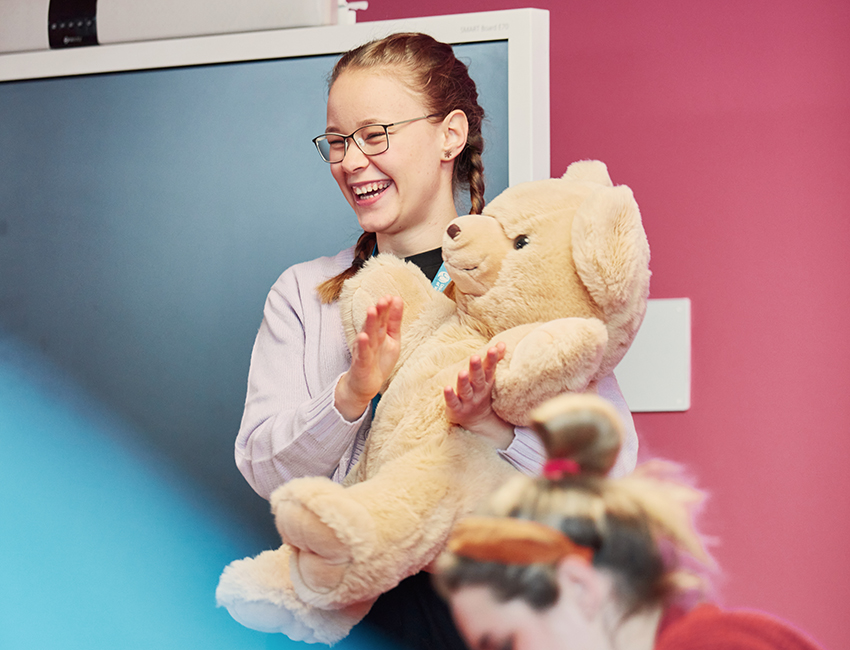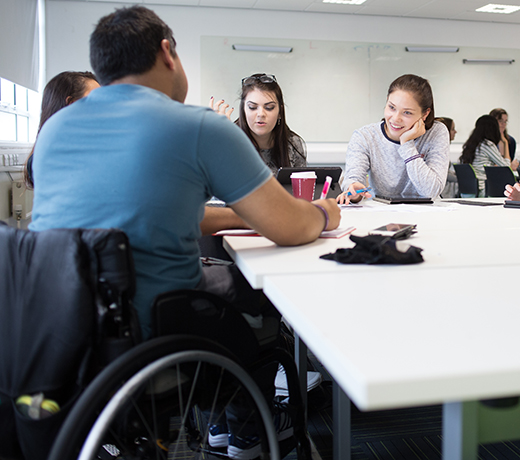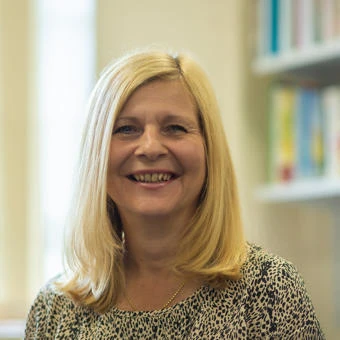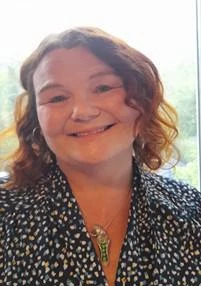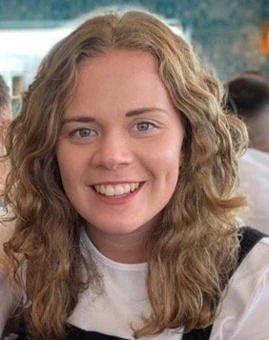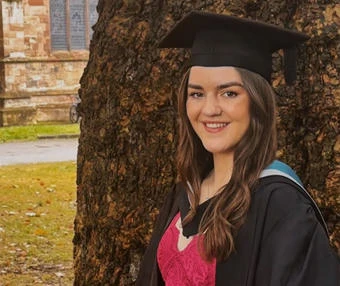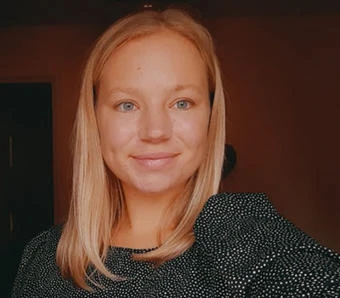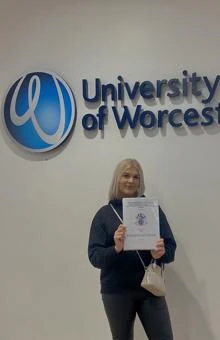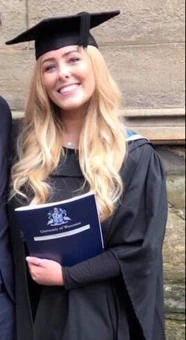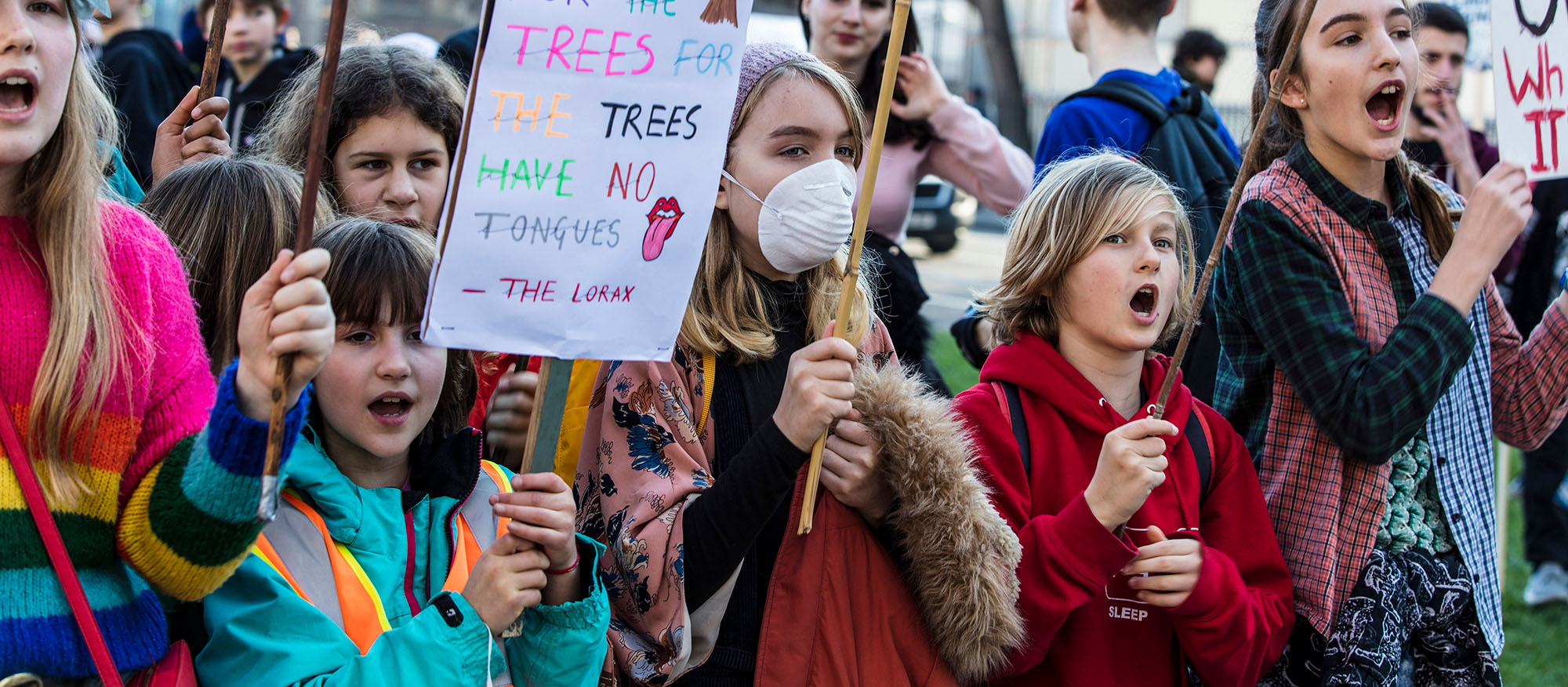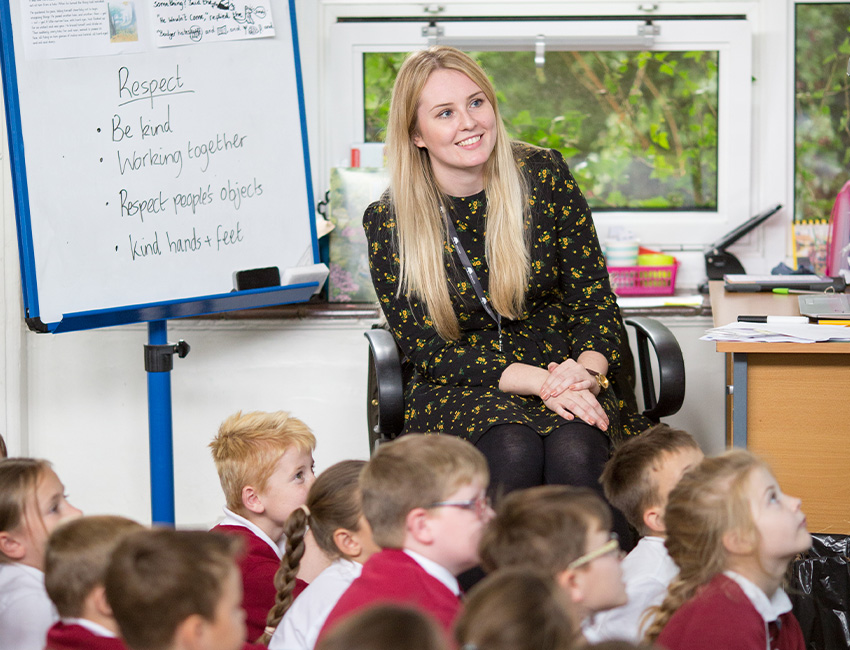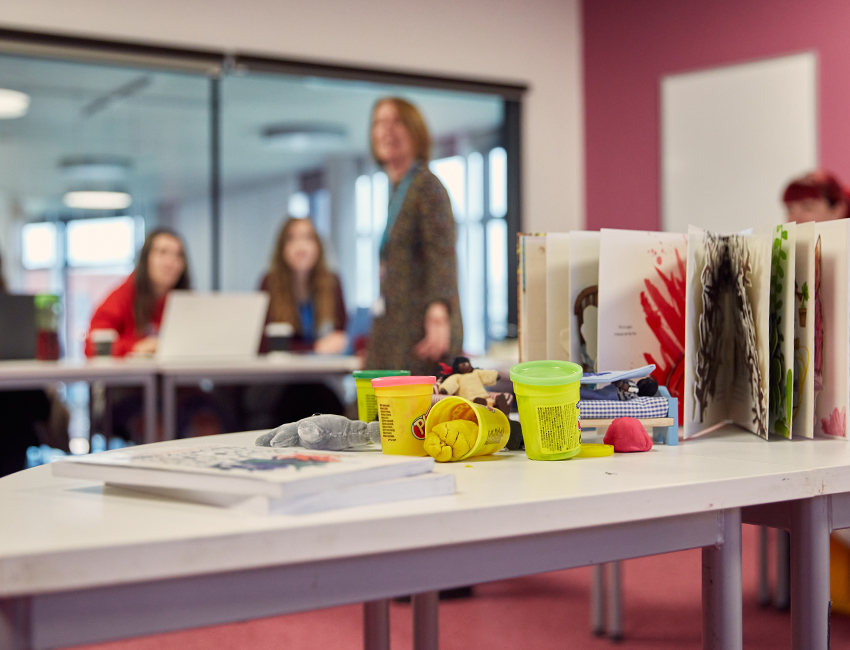Our Early Childhood course is flexible, and dependent on your career aspirations you can choose to follow one of two pathways. The Graduate Practitioner pathway is for those wishing to work in mainstream education, either in the early years or by going on to train to teach. Alternatively, you can follow the Social Pedagogy pathway if you would prefer to work with children and families beyond the classroom.
for graduate prospects
of students were positive about the teaching on this course
Accreditation
Early Childhood (Graduate Practitioner)
Our BA (Hons) Early Childhood (Graduate Practitioner) is an approved qualification by the Department for Education and Ofsted, necessary for you to be included in ratios within an Ofsted registered setting. Practice is assessed against the Early Years Educator (EYE) criteria.
The University of Worcester is a member of the Early Childhood Studies Degree Network (ECSDN). In addition to gaining an approved EYE qualification, there is the option to have your practice assessed against the level 6 ECSDN Graduate Practitioner Competencies – enhancing your employability as a highly skilled graduate.
Early Childhood (Social Pedagogy)
This pathway is endorsed by the Social Pedagogy Professional Association. It is particularly suitable for those who want to work with children and families beyond mainstream education, for example: parenting and family support, excluded children, residential care, charity work overseas and in the UK, and therapeutic play work.
University of the Year finalist
Recognised for our graduate success, we’re shortlisted for University of the Year in the Times Higher Education Awards 2025.
Overview
Convinced you want to work with children and families but not quite sure in what way? This degree lets you explore many possibilities and can lead to a range of job opportunities, including child and family support work, leadership in an early years setting, fostering and adoption services, play therapy facilitation and child advocacy roles.
You'll be able to choose modules and placements that fit with your future goals. Interested in speech and language work? Choose ‘Children’s Communication and Language’ as an optional module and try a placement in a speech and language unit. Hoping to work with children with Special Educational Needs and Disabilities? Choose the ‘Inclusive Approach to Working with Children with Additional Needs’ module and undertake placement in a specialist school.
You have two pathways to choose from. Our Graduate Practitioner pathway is ideal if you're aiming to work in education, while those who prefer to support children and families in settings beyond the classroom can follow the Social Pedagogy pathway.
Regardless of which pathway you choose, you'll be well-prepared for the joys and challenges of working with young children and their families.
Placements
Work-based learning is central to this course, with recent placement opportunities including schools, nurseries, community groups and family support teams. There is also an opportunity for an extended placement abroad. Practical learning will be supported through a mixture of directed tasks, including a reflective journal.
You’ll complete a minimum of 210 hours of practice placements each year. There are 7 different placement opportunities throughout the course allowing you to try out a range of professional environments to find where you fit best. You are permitted to find your own placements, should you wish, or a placement can be found for you by our dedicated team.
Course content
All modules in your first year are mandatory and are designed to equip you with a core understanding of child development. Some mandatory modules will be specific to the pathway you choose: Graduate Practitioner or Social Pedagogy.
You can choose between optional modules in your second and third years, depending on your field of interest. Optional modules are available to students on both pathways.
We regularly review our courses to reflect the latest research and developments in the subject area, as well as feedback from students, employers and the wider sector. As a result, modules may change to ensure the course remains current and relevant.
Optional modules will run if enough students choose to study them. It is not guaranteed that all modules will be offered every year.
Careers
Working with young children and their families is a rapidly expanding area of expertise, offering many career opportunities for graduates. Regardless of which pathway you choose, this degree is an ideal springboard for those who want to specialise in this field.
As you explore the different opportunities available to you, we’ll support you in developing the professional skills needed for a successful future career. You’ll have access to our dedicated Careers and Employability services at every stage of your journey. From your first day on campus to post-graduation, our team will support you with career planning, CV and cover letter advice and application guidance.
Graduate Practitioner Pathway
- Early years educator
- Higher level teaching assistant
- Nursery room leader
- Play leader
Social Pedagogy Pathway
- Independent business or consultancy owner
- Education Welfare worker
- Health play specialist
- Therapeutic care home worker (residential)
- Family support worker
- Non-Government Organisation (NGO) worker
- Charity worker
- Adoption and fostering worker
- Children and young person's advocate
Opportunities to progress
Many of our graduates choose to undertake further study — for example, an MA in Social Work. If you’re pursuing a career in teaching, a 2.2 degree classification or above will enable you to be considered for an interview for one of our PGCE Primary courses, provided you meet the course prerequisites.
Course highlights
Teaching and assessment
The University places emphasis on enabling students to develop the independent learning capabilities that will equip you for lifelong learning and future employment, as well as academic achievement.
A mixture of independent study, teaching and academic support through the personal academic tutoring system will support you to reflect on your progress. This will help you to build up a profile of skills, achievements and experiences that will enable you to flourish and be successful.
Teaching and assessment contents
Students are taught through a combination of interactive workshops, lectures, seminars, practical activities, etc. Interactive workshops take a variety of formats and are intended to enable the application of learning through discussion and small group activities. Seminars enable the discussion and development of understanding of topics covered in lectures; sessions are focused on developing subject specific skills and applied individual and group project work.
The University places emphasis on enabling students to develop the independent learning capabilities that will equip them for lifelong learning and future employment, as well as academic achievement. A mixture of independent study, teaching and academic support from Student Services and Library Services, and also the Personal Academic Tutoring system enables students to reflect on progress and build up a profile of skills, achievements and experiences that will help them to flourish and be successful.
Meetings with personal academic tutors are scheduled on at least 4 occasions in the first year and three occasions in each of the other years of a course.
Meet the Team
Meet some of our Institute of Education staff.
Entry requirements
UCAS tariff points required: 96
| Qualification | Grade |
|---|---|
| A-level | CCC |
| BTEC National Extended Diploma | MMM |
| T-level | Pass (C or above) |
We do accept Access to HE Diplomas and other qualifications which may not exactly match the combinations above. Work out your estimated points with the UCAS tariff calculator.
Any questions?
If you have any questions about entry requirements, please call our Admissions Office on 01905 855111 or email admissions@worc.ac.uk.
Fees
Fees contents
UK and EU students
In 2026/27 the standard fee for full-time home and EU undergraduate students on BA/BSc/LLB degrees and FdA/FdSc degrees is £9,790 per year.
Tuition fees are reviewed annually and may increase each year for both new and continuing students.
For more details on course fees, please visit our course fees page.
International students
In 2026/27 the standard tuition fee for full-time international students enrolling on BA/BSc/LLB degrees and FdA/FdSc degrees is £17,200 per year.
Tuition fees are reviewed annually and may increase each year for both new and continuing students.
For more details on course fees, please visit our course fees page.
Graduate Case Studies
How to apply
How to apply contents
Applying through UCAS
UCAS is the central organisation through which applications are processed for full-time undergraduate courses in the UK.
Read our how to apply pages for more information on the application process, or if you’d like to apply for part-time study.
Contact
If you have any questions, please get in touch. We're here to help you every step of the way.
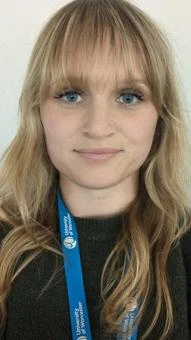
Admissions Office
admissions@worc.ac.uk01905 855111More to explore
Open Days
Visiting us is the best way to get a feel for student life at the University of Worcester.

The City of Worcester
Worcester is a welcoming university city with great transport links and plenty of student parking.

Accommodation
Benefit from our accommodation guarantee. We have rooms on campus to suit every budget including en-suite options.

